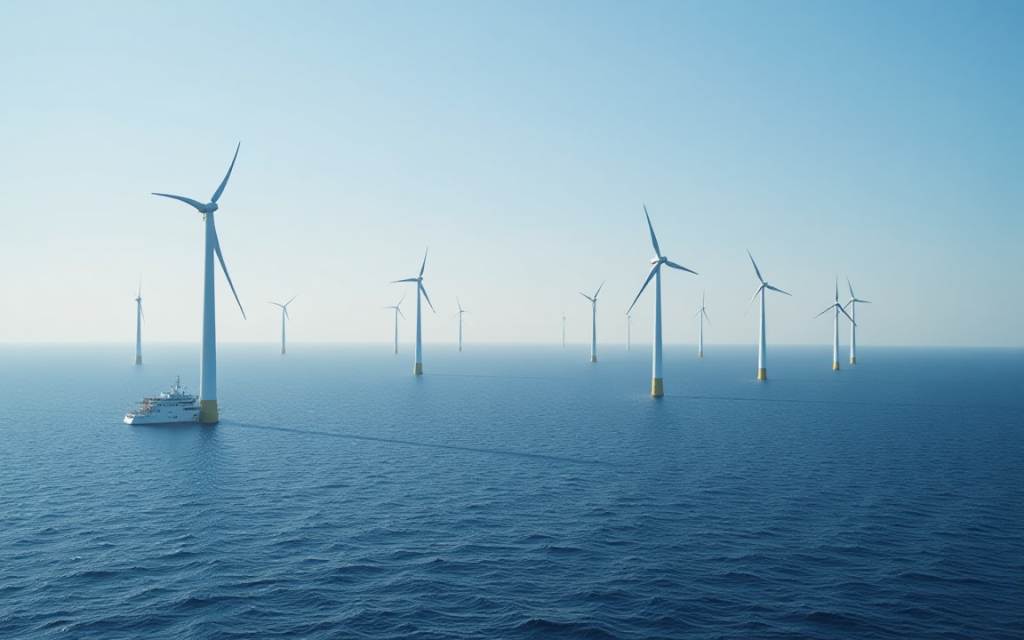The Crown Estate announced on Thursday that Equinor and Gwynt Glas have secured seabed leases.
These leases will allow them to construct floating wind farms in the Celtic Sea, off the coasts of Wales and South West England.
The Crown Estate, serving as the steward of the seabed surrounding England, Wales, and Northern Ireland, has recently awarded crucial leases for offshore wind development.
Projects
These leases grant rights to two distinct entities, Equinor and Gwynt Glas, each to construct significant 1.5 gigawatt (GW) projects.
Equinor, a globally recognised energy company, is set to develop its own 1.5 GW project, further solidifying its presence in the renewable energy sector.
Meanwhile, Gwynt Glas, a collaborative joint venture, will also embark on a 1.5 GW endeavor.
This partnership brings together the expertise of EDF Renewables UK, a prominent player in the British renewable energy landscape, and ESB, a leading Irish energy company.
These lease awards represent a pivotal step in expanding the UK’s offshore wind capacity, contributing to national renewable energy targets and bolstering energy security.
The selection of these particular projects underscores a commitment to advancing large-scale renewable energy generation through strategic partnerships and established industry leaders.
Cutting reliance on fossil fuels
To reduce its dependence on fossil fuels, Britain plans to largely decarbonise its electricity sector by 2030.
The country aims to increase its offshore wind capacity to 43-50 GW by the end of the decade, a significant jump from the current 16 GW.
“Floating offshore wind will be transformative for economic growth in Wales and the South West, unlocking thousands of jobs in places like Port Talbot and Bristol, bolstering our energy security and delivering industrial renewal,” Britain’s Energy Secretary Ed Miliband said.
The Celtic Sea has huge untapped potential to support our mission to become clean energy superpower, so we can get energy bills down for good through our Plan for Change.
Equinor and Gwynt Glas will each pay £525,000 annually for their respective leases, excluding VAT.
This fee, set at £350 ($468.55) per megawatt per year, covers a ten-year option period.
Floating wind technology
Harnessing stronger and more continuous wind for greater power generation, floating wind projects offer the advantage of installation in deeper waters compared to fixed-bottom foundations.
“With the areas’ deeper waters, we believe there is future potential for floating wind to play a role in unlocking the UK’s journey towards net zero,” Melissa Read, Equinor’s Head of Regional Development UK, said in a separate statement.
Meanwhile, Trine Borum Bojsen, Senior Vice President for Renewables Europe of Equinor, said:
The UK is a core strategic market for Equinor and a market where we have more than a decade’s experience in offshore wind. The seabed lease offers the scalability and timing flexibility we seek and is a long-term option for Equinor’s renewables portfolio.
The consenting process for the projects is expected to take three to five years, with full operation anticipated in the early 2030s.
The Crown Estate announced that 4.5 GW of leases have been made available, with details regarding the remaining 1.5 GW to be released soon.
Last year, wind power, encompassing both onshore and offshore sources, emerged as Britain’s primary electricity provider, fulfilling approximately 30% of the nation’s power requirements.
An independent commercial entity, The Crown Estate, generates profits that are directed to the Treasury.
These profits also serve as the standard for determining the amount of public funds allocated to the Royal Family.
The post Equinor and Gwynt Glas secure leases to power Britain with offshore wind appeared first on Invezz



